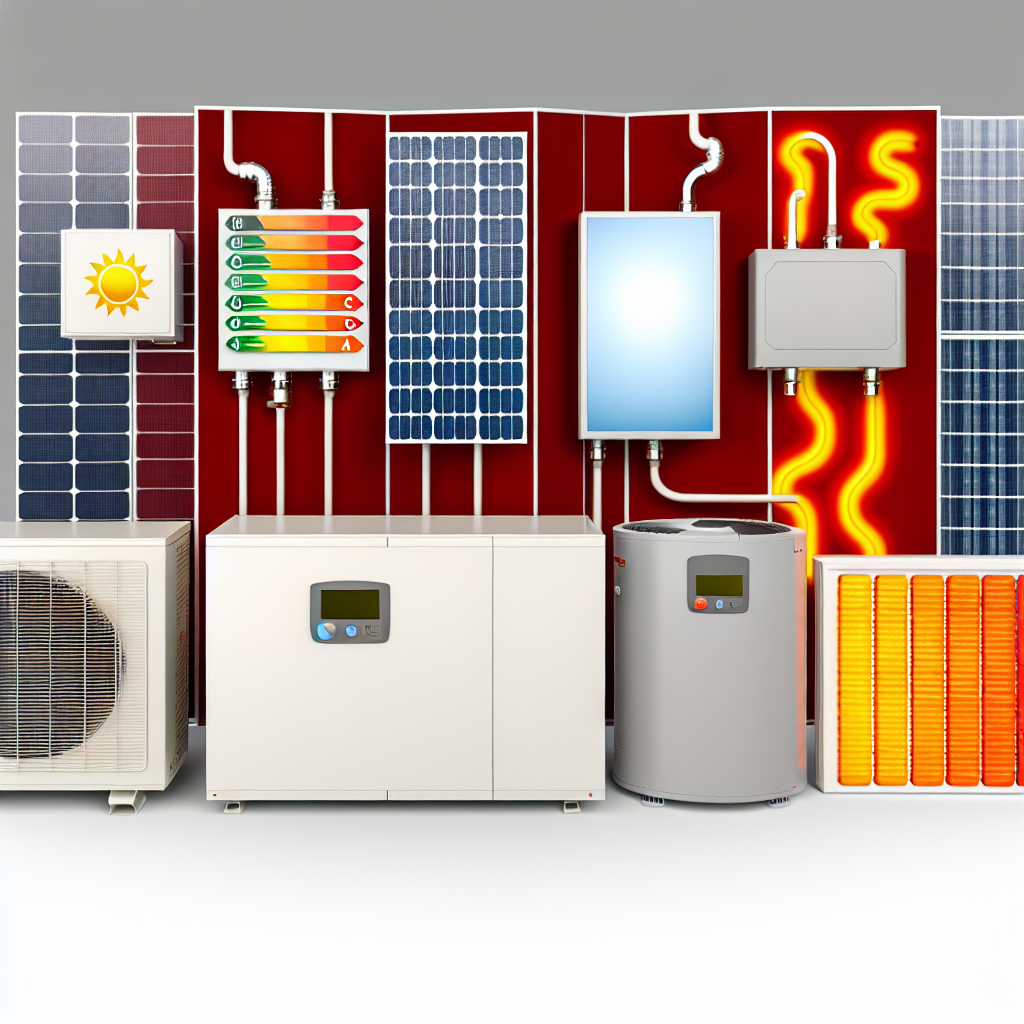Published: Jan 25, 2025

Heating your home efficiently is not only beneficial for your wallet but also for the environment. With the rising costs of energy, it's important to explore different heating options that provide both warmth and energy savings. In this article, we will compare some of the most popular energy-efficient heating options for residential spaces.
Heat pumps are known for their energy efficiency because they transfer heat between the indoors and outdoors rather than generating heat. There are two main types of heat pumps: air source heat pumps and geothermal heat pumps. Air source heat pumps are more common and suitable for moderate climates, while geothermal heat pumps are highly efficient but come with a higher installation cost.
Furnaces are traditional heating systems that use fuel such as natural gas, oil, or propane to produce heat. While modern furnaces have become more energy-efficient, they can still be less efficient compared to heat pumps. However, in regions with extremely cold climates, a high-efficiency gas furnace might be a better choice.
Boilers work by heating water and distributing the heat through radiators or underfloor heating systems. They are known for providing consistent warmth and are highly energy-efficient. Newer boiler models often come with advanced features like programmable thermostats and zoning capabilities for further energy savings.
Electric resistance heating, such as baseboard heaters or electric furnaces, is a less energy-efficient option compared to heat pumps or boilers. These systems directly convert electricity into heat, making them less environmentally friendly and more costly to operate. However, they can be a viable choice for small spaces or areas with mild winter conditions.
Climate: The climate of your region plays a significant role in determining the most suitable heating system. For colder climates, a high-efficiency furnace or geothermal heat pump might be more appropriate.
Initial Cost vs. Operating Cost: While some energy-efficient heating options may have a higher upfront cost, they can result in long-term savings on energy bills. Consider both the initial investment and ongoing operating costs when making a decision.
Energy Sources: Think about the availability and cost of different energy sources in your area. Natural gas may be more affordable in some regions, while electricity or propane might be more common in others.
Maintenance Requirements: Regular maintenance is crucial for keeping your heating system operating efficiently. Consider the maintenance needs of each heating option when making a decision.
In conclusion, choosing an energy-efficient heating option requires careful consideration of various factors such as climate, cost, energy sources, and maintenance requirements. Heat pumps, boilers, and high-efficiency furnaces are among the top choices for homeowners looking to reduce their energy consumption and lower utility bills. By selecting the right heating system for your home, you can stay warm and comfortable while also being eco-friendly and cost-effective.
For more information on energy-efficient heating options or to schedule a consultation with our HVAC experts, contact us today.
**

Our expert technicians are ready to assist you 24/7!
Contact Us Today!Read our latest articles for helpful information about heating, cooling, and air quality.
Regular HVAC maintenance is essential for improving energy efficiency, extending the lifespan of your system, enhancing...
Read MoreImplement these 10 tips to enhance the air quality in your home, promoting a healthier living environment for you and y...
Read MoreRegular seasonal HVAC maintenance is essential for maximizing system efficiency, ensuring indoor air quality, preventing...
Read MoreSmart thermostats offer energy savings, convenience, learning capabilities, and integration with smart home systems, mak...
Read More